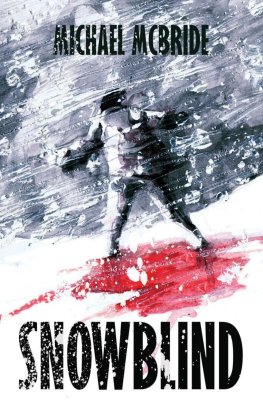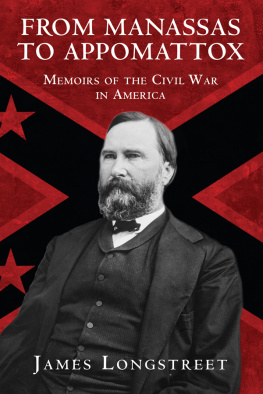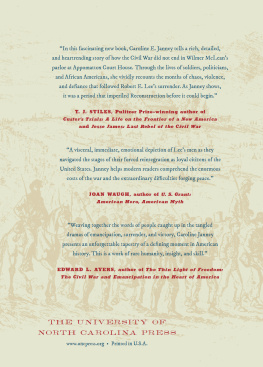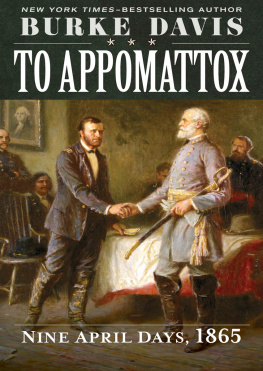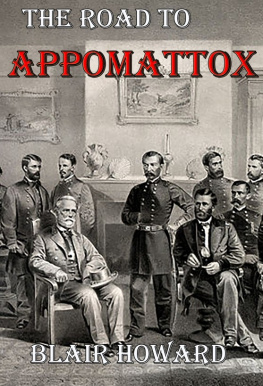R. E. McBride
In The Ranks: From the Wilderness to Appomattox Court House
The War, as Seen and Experienced by a Private Soldier in the Army of the Potomac
Published by Good Press, 2019
EAN 4064066174941
PREFACE.
Table of Contents
In giving this book to the public we do so under the same plea which justifies those pleasant gatherings called "reunions," where men of the same regiment, corps, or army, meet to extend friendly greetings to each other, to friends, and all comrades in arms.
The writer has found it a pleasant task to recall the scenes of fifteen years ago, when, a mere boy in years, he had a part in the events here recorded. He is conscious of a kindly affection toward the men who were his companions during those stirring times. Kindness, thoughtfulness, forbearance, toward the boy-soldier, are not forgotten. If he found any thing different from these in his intercourse with men or officers, it has passed from memory, and he would not recall it if he could.
We trust, also, that this work may have a mission of utility to the generation that has grown up since the war.
There is a certain almost indefinable something, which has been summed up under the expression, "military traditions." This comes not alone from formal histories of the wars of the nation, but more largely from the history which each soldier carried home with him after the war was over. It meant something more than a certain amount of small family vanity, when men used to say, "My father was a soldier of the Revolution;" "My father fought at Lundy's Lane."
There lay back of this the stories told to wondering little ones while they gathered around the arm-chair of the soldier grandfather. Here were planted the seeds of military ardor that found expression at Gettysburg, Vicksburg, Atlanta, and the Wilderness. It is thus the past of the nation projects itself into the present. Our comrades that sleep down yonder guard their country more effectually than if, full armed, they kept unceasing watch on all her borders. Though dead, they yet speakyes live, in the spirit which yet lives in the hearts of their countrymen. The cause they died for our children will love; the institutions they preserved at such cost, our sons will perpetuate by intelligent devotion to freedom and her laws.
Is it in vain, then, my comrade, that I sit down in your family circle, and tell your children the story of our hardships, trials, reverses, victories?
This narrative is submitted to you almost as first written, when intended only for the perusal of my own family. In recounting events subsequent to August 19, 1864, when the One Hundred and Ninetieth is spoken of, the One Hundred and Ninety-first is also included, as they were practically one.
Since completing the work, the author has learned that the report of the Adjutant-general of Pennsylvania gives these regiments, the One Hundred and Ninetieth and One Hundred and Ninety-first, no credit for service subsequent to the battle of Welden Railroad, in August, 1864. We give an explanation of this in the closing chapter, and send forth this volume, hoping that it may serve, in some measure, to do justice to as devoted a body of men as Pennsylvania sent to the field.
Seneca, Kansas , March, 1881.
| Chapter I |
| Chapter II |
| Chapter III |
| Chapter IV |
| Chapter V |
| Chapter VI |
| Chapter VII |
| Chapter VIII |
| Chapter IX |
| Chapter X |
| Chapter XI |
| Chapter XII |
| Chapter XIII |
| Chapter XIV |
| Chapter XV |
| Chapter XVI |
| Chapter XVII |
| Chapter XVIII |
| Chapter XIX |
| Chapter XX |
INTRODUCTION.
Table of Contents
I have long purposed the following work, designing to put in a form somewhat permanent my recollections of experiences in the great war, believing it may be a source of satisfaction to my children in later years. Already many of those scenes begin to appear dim and dreamlike, through the receding years, and many faces, once so clearly pictured in memory as seen around the camp-fire, in the march, and on the field of battle, have faded quite away. These things admonish me that what is done must be done quickly.
In the following pages you will find the names of men otherwise unknown, because their part in the great conflict was an humble one, yet none the less grand and heroic. This is written during the brief and uncertain intervals of leisure that may be caught up here and there amid the pressing work of the pastorate. You will not, then, I trust, undervalue it because of literary blemishes. It is history as really as more pretentious works. It is a specimen of the minuti of history, a story of the war as seen by a private in the ranks, not by one who, as a favored spectator, could survey the movements of a whole army at a glance, and hence could, must, individualize brigades, divisions, army corps. It is the war in field, woods, underbrush, picket-post, skirmish-line, camp, march, bivouac. During 1864 no memorandum was kept, and a diary kept during the spring of 1865 was lost, within a year after the close of the war. Hence I have depended on memory alone, aided in fixing dates, etc., by reference to written works. Beyond this, the histories consulted were of little assistance, as their record of events sometimes differed materially from my recollection of them. In such cases I tell my own story, as the object is to record these things as they appeared to me.
In recording events of which I was not myself a witness, I give the story as heard from the lips of comrades. Such portions are easily discernible in the body of the narrative. You can have them for what they are worth.
"I can not tell how the truth may be,
I tell the tale as 'twas told to me."
In the Ranks.
Table of Contents
Chapter I.
Table of Contents
"WAR!"
Table of Contents
It is a little word. A child may pronounce it; but what word that ever fell from human lips has a meaning full of such intensity of horror as this little word? At its sound there rises up a grim vision of "confused noise and garments rolled in blood." April 12, 1861, cannon fired by traitor hands, boomed out over Charleston harbor. The dire sound that shook the air that Spring morning did not die away in reverberating echoes from sea to shore, from island to headland. It rolled on through all the land, over mountain and valley, moaning in every home, at every fireside, "War! War! War!"
Are we a civilized people? What is civilization? Is it possible to eliminate the tiger from human nature? Who would have dreamed that the men of the North, busy with plowing and sowing, planning, contriving, inventing, could prove themselves on a hundred battle-fields a fiercely warlike people? The world looked on with wonder as they rushed eagerly into the conflict, pouring out their blood like water and their wealth without measure, for a sentiment, a principle, that may be summed up in the one word"nationality." "The great uprising" was not the movement of a blind, unreasoning impulse. A fire had been smoldering in the North for years. The first cannon shot, that hurtled around the old flag as it floated over the walls of Fort Sumter shook down the barriers that confined it, and the free winds of liberty fanned it to a devouring flame.




